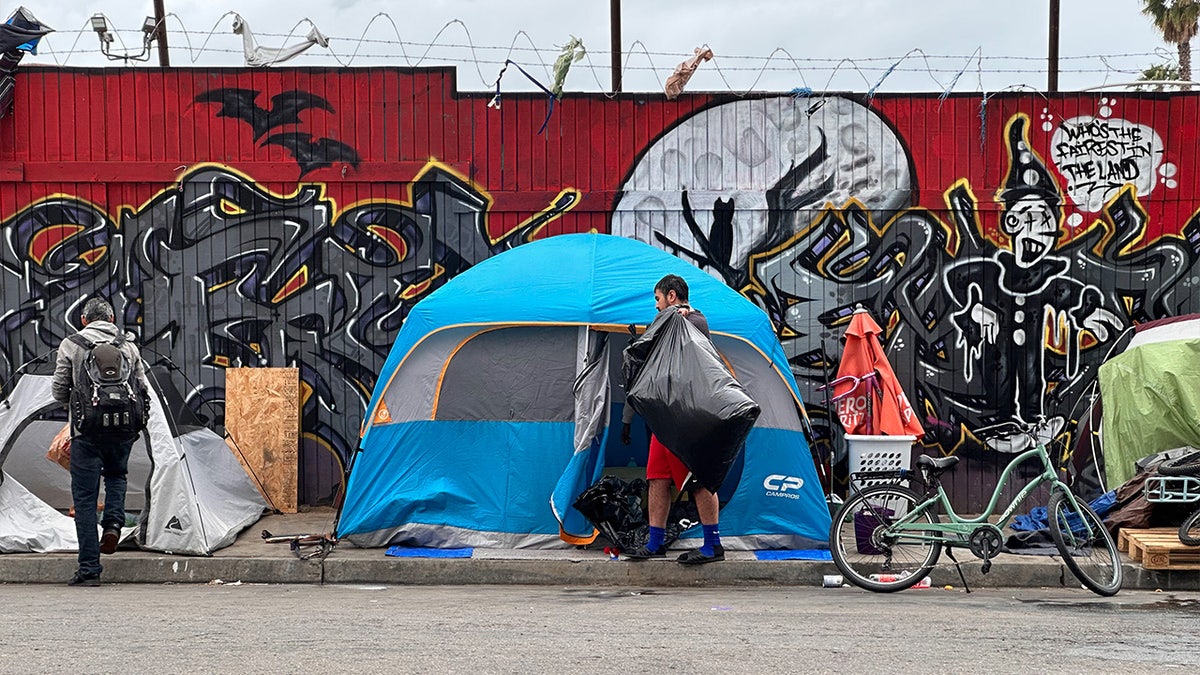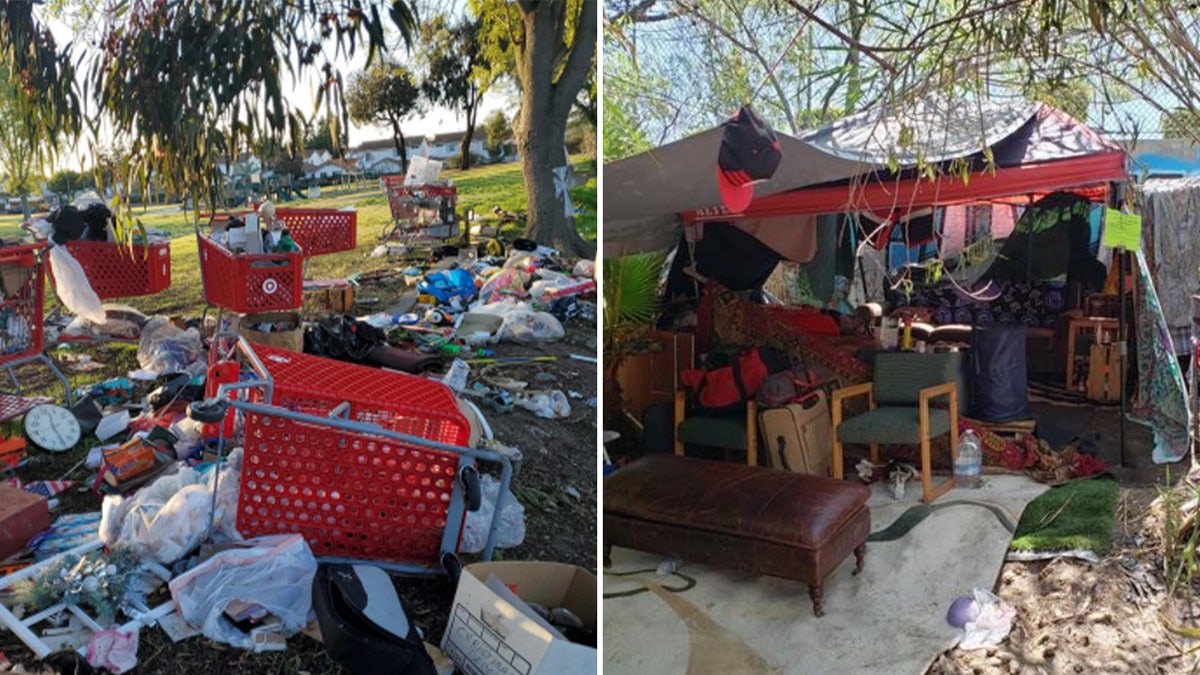San Diego business owner criticizes costly plan to buy hotels to house homeless
San Diego's plan to house more than 400 homeless people in hotels comes with a hefty price tag, but one business owner says it won't address the root of the problem.
A San Diego business owner and CEO is skeptical city leadership's plan to turn four hotels into housing for homeless people will foster lasting results.
"They're just trying to clean up a little bit of the people and get them out of the public's vision so they can get voted back in," Kate Monroe told Fox News. "They're not actually digging down to the root of the problem."

Nearly 2,000 people lived outdoors in San Diego, California, as of April 2023. VetComm CEO Kate Monroe is skeptical the city's plan to house upwards of 400 homeless people in hotels will help. (Courtesy Kate Monroe)
The San Diego Housing Commission announced plans in April to buy three Extended Stay America Suites at a total cost of nearly $158 million to house more than 400 homeless individuals. In mid-May, the commission agreed to apply for $18 million in state funds to purchase a fourth hotel, a 63-room Ramada Inn in the city's Midway District.
Factoring in remodeling costs to install kitchens and other upgrades, the per-unit cost of the commission's plan is nearly $400,000, according to The San Diego Union-Tribune.
"They’re almost ready to go, and so that’s certainly a reasonable cost to have a small apartment, put a little bit in it, make it even a little bit nicer and give hundreds and hundreds of people a place to live," homeless advocate Michael McConnell told FOX 5 in April.
But Monroe said the "housing first" approach will only work for a small segment of the homeless population "who are desperately trying to get jobs."
‘HUGE FAILURE’ TO THINK HOTELS WILL ‘MAGICALLY’ FIX ADDICTION, MENTAL ILLNESS, CEO SAYS:
WATCH MORE FOX NEWS DIGITAL ORIGINALS HERE
"It does not work well for people who are mentally ill and are on drugs," she said. "It's a huge failure on our part to think we're going to take them off the street and somehow, magically, just because they're in a hotel room, that they're going to be free of drugs and alcohol or mental illness."
Monroe is the CEO of VetComm, a San Diego business that works with veterans to navigate Department of Veterans Affairs claims, and its nonprofit arm House the Heroes, which helps homeless veterans obtain disability compensation and transition into housing. She said if San Diego's approach to the homeless crisis were "run like a business and it went bankrupt, it wouldn't get any more money."
"It would be done. Your plan failed. Now it's time for a new plan," she said. "It doesn't work like that in homeless advocacy. They get more money and more money and more money and if they fix the homeless problem, the money goes away."
Nearly 2,000 people lived outside in the city in April, the highest level in more than 10 years, according to data from the Downtown San Diego Partnership.
As homelessness has increased statewide, California leaders have proposed several different housing options. In March, Gov. Gavin Newsom pledged to spend about $30 million building 1,200 tiny homes across the state. Los Angeles has increased spending on homeless programs for years — Mayor Karen Bass recently called for a record $1.3 billion to go toward the crisis — but the homeless population has only increased.

San Diego's Environmental Services Department regularly finds items in encampments or tents that it says poses a risk to public health or the environment. Nearly 70% of the trash collected in October 2022 by the San Diego River Park Foundation came from unauthorized encampments, according to the city. (City of San Diego)
CLICK HERE TO GET THE FOX NEWS APP
Big cities "like to bring in a ton of funds and not let a ton of funds go back out because infrastructurally, they're employing a ton of people," Monroe said. "They have all these programs that are supposed to help when really, at the end of the day, they don't actually effectively change anything."
To hear more from Monroe, click here.










































